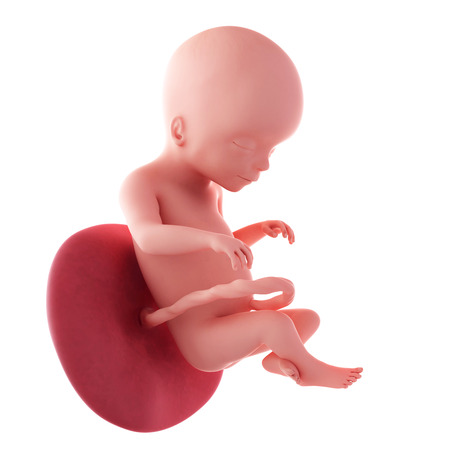How Your Newborn is Growing?
As you bring your newborn baby home from the hospital, a new life begins and your old routine no longer exists. You are constantly busy with new priorities and a little one to look after. It is surprising how such a small little baby can keep you on your toes all day long. Seeing your baby grow each day is a wonderful experience. The baby’s development week by week will teach you and make you an experienced parent. You could also download the week by week baby development app which gives you the detailed description of what you should expect each week.
Newborn Baby Week 1 – Growth and Development
- Feeding: There may be many concerns in your mind like how often should a newborn eat, sleep etc. Your one week old will feed every 2-3 hours in this initial few weeks. The number of feeds will also vary depending on whether your baby is breastfed or formula fed. Breastfed babies tend to eat every 2-3 hours at times even every hour. You should follow your newborn baby’s cues and not stick to any pattern in the first few weeks. Formula fed babies tend to feed every 3-4 hours as formula is difficult to digest as compared to breast milk. 1 week old baby feeding amount usually ranges from 30-40 ml per feed.

- Sleep: Can newborns sleep too much could be a question you are definitely going to ask. 1 week old baby sleep can range between 18-20 hours a day which may seem to you like the entire day, waking up only for feeds and diaper changes. This is completely normal and you shouldn’t get too worried.
- Vision: Newborn babies are short sighted and can see only upto 15 inches that is the distance between the baby and your face when you hold him upright. So, responding to toys and other objects is still a few weeks away. You will be able to bring out those colorful toys in a few weeks from now.
- Skin: Your baby’s skin is very delicate so you must be very careful what you apply on it. Use only baby safe products and check with your pediatrician before you do so. In the first week, you might notice the skin peeling off. This is normal and does not need to be treated. Red bumps, acne, white spots called milia etc are some of the things that you may notice.
- Urine and Stool output: The baby will pass meconium (greenish sticky tarry stool)which is the first stool the baby will pass on the first day after birth. After that the stools gradually change color and become normal mustard color. The breast fed baby may pass loose, seedy mustard color stool after every feed in the initial few days. Formula babies may pass less frequent and denser stools. Normal urine output can be measured if your baby makes 6-8 wet diapers a day.
How is Your Life Changing?

With each passing day, my newborn week by week grows and matures! Mothers love to watch their baby grow and see new milestones. As a breast feeding mother, there are many changes happening in your body too. The baby, immediately after birth must get the first milk that is thick and yellowish colostrum as it is very rich in antibodies and provides your baby with immunity. You will find the first week of breastfeeding very tiring and taxing but hang on, as it will get easier. You could use breast pads to soak the excess milk if you are leaking. In many mothers who have had a C section, the milk flow may take a few takes to set in. Keep feeding your baby on demand and the suckling will help to set in the milk flow soon. The sign of adequate and proper breast feeding is the baby gaining enough weight.
Baby weekly development after birth is very fascinating to learn. The reading up may help you to know and take care of your baby better. It is a lovely experience to see your little one grow each day.
Important for This Week
Physiological jaundice is very common in the first week of life. The skin of your newborn baby may look a little yellowish. Keeping the newborn baby in the sun for 10-15 minutes will help. However, if you notice the yellowish tinge increasing, you must visit the doctor as the baby may need phototherapy with hospital admission.
The umbilical cord stump may still be there or may have fallen off. It dries up by the end of the first week of life spontaneously.



